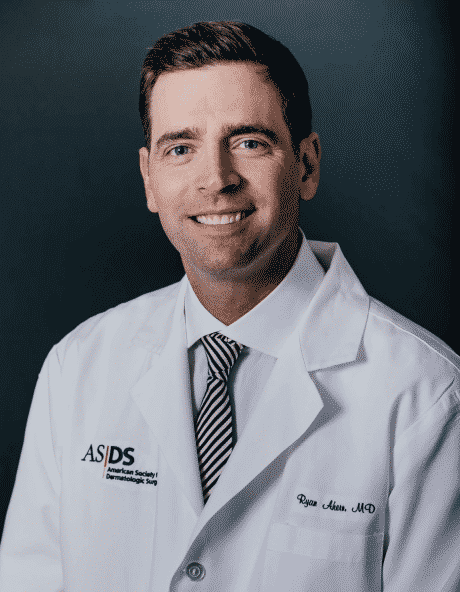What To Expect
Mohs' Surgery
What To Expect
The Procedure
The Mohs surgery procedure takes place in an office using a local anesthetic to numb the area completely. After the anesthesia takes effect, the surgeon begins to remove thin layers of skin one layer at a time with a scaple in the shape of a saucer, which are then marked with colored dyes and mapped. Although some cancers may appear realtively small on the surface of the skin, they may be more deeply rooted in the lower levels of the skin with extensive growth several skin layers below. Other cancers may be shallow and require only a small excision of the surface area.
After the excision, the sample is frozen, sliced into very thin sections and processed onto glass slides by a Mohs histotechnician. The Mohs surgeon then examines the slides under the microscope to discover the extent of the skin cancer and identify microscopic roots. If tumor cells remain in any of the margins, the map is used to remove an additional tissue layer precisely at the area where cancer remains. This procedure continues until the tissue is cancer-free and allows normal, healthy, surrounding tissue to be spared.
After the skin cancer has been removed, repairing the site of the skin cancer using reconstructive surgery can often be performed on the same day.
What To Expect
Care After Mohs Surgery
The surgeon will dress the wound and provide care instructions. This may include a topical ointment, medication or special care instructions to reduce the risk of infection.
What To Expect
Reconstruction After Mohs Surgery
In the majority of cases, reconstructive surgery will be performed by your Mohs surgeon immediately after the skin cancer has been removed. Occasionaly, skin may need to be removed form cosmetically sensitive areas such as the nose or areas around the eyes and ears. In these specific cases, a skin graft or local flap is used to restore the features on the face. Other Mohs procedures may not require reconstructive surgery at all. In extremely rare, complex, cases where large reconstructions are needed, they are better performed in the operating room under sedation or general anesthesia. In these rare cases, a consultation will help determine what type of reconstructive surgery you will need.
Our Contacts
Contact Us
1651 Rock Prairie Road Suite #103
College Station, Texas 77845
(979) 314-5400


